
Changing the coffee trade one farmer at a time
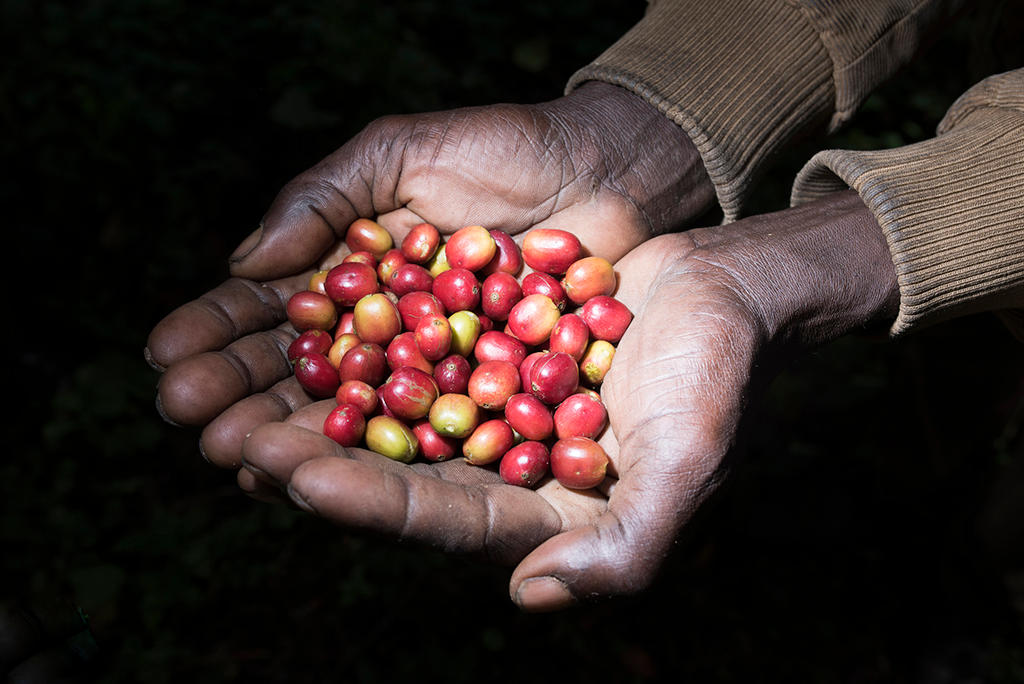
As we sip cappuccinos and watch the leaves fall from the trees in Switzerland, thousands of Ethiopian farmers are plucking coffee cherries off Arabica trees in the Agaro forest. One couple in Basel is trying to bring these two worlds closer together.
Ethiopia is said to be the birthplace of wild Arabica coffee. In the western regions of Jimma and Kaffa, coffee is not just the primary income source but the inspiration for myths and legends and the centre of local culture and tradition.
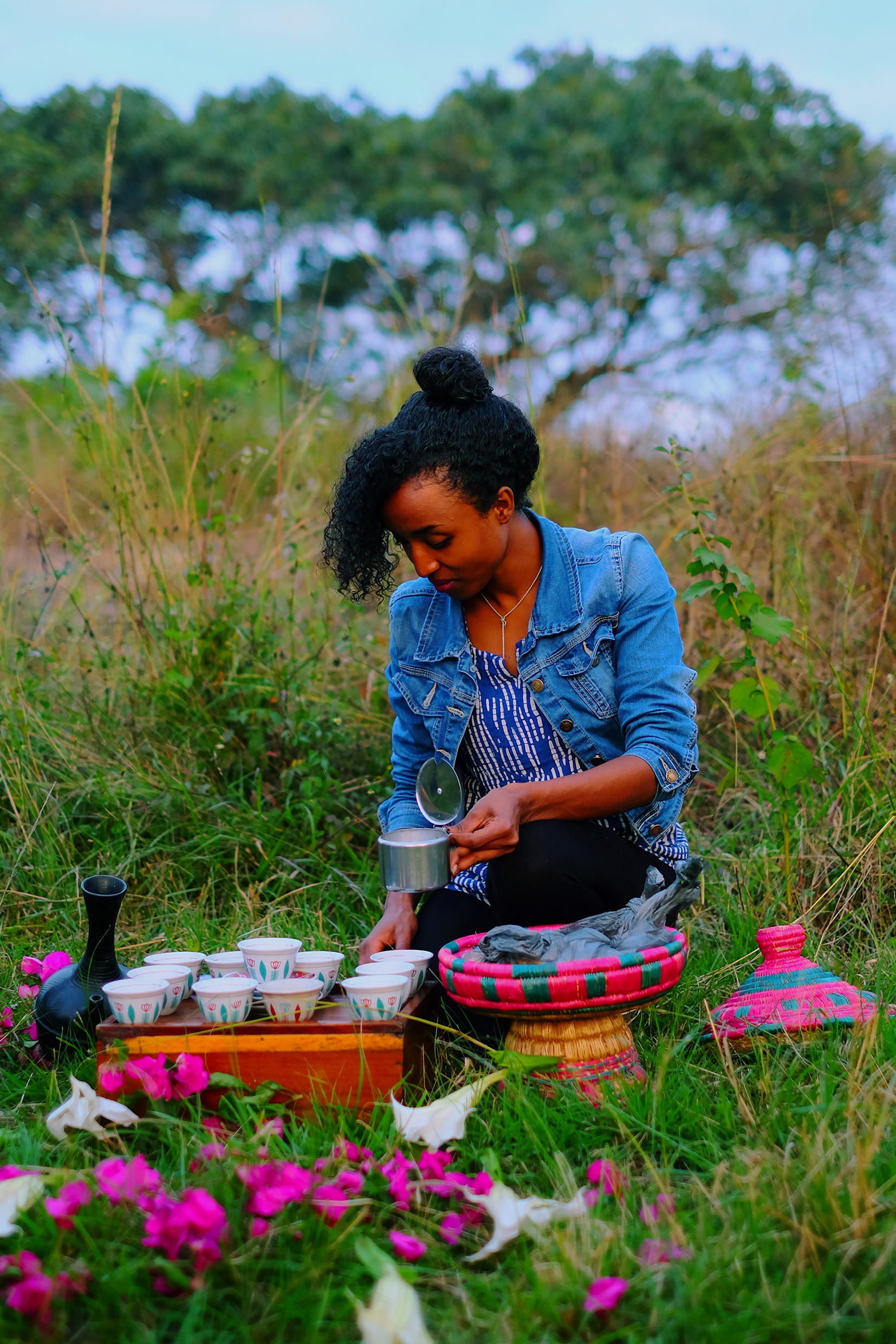
It is this deep appreciation for producing, drinking and sharing coffee that attracted Michaël and Marie Tuil to the forests of Ethiopia several years ago. They are the founders of Direct CoffeeExternal link, a start-up with a clear premise: the highest quality and most sustainable coffee can be achieved when you get to know the people who produce it.
“We wanted to open the black box on both sides of the coffee trade. It isn’t just important for coffee drinkers to understand where the coffee comes from,” Michaël Tuil explains. “Farmers also ask us ‘who are the people who drink our coffee?’ They have a lot of misconceptions.”
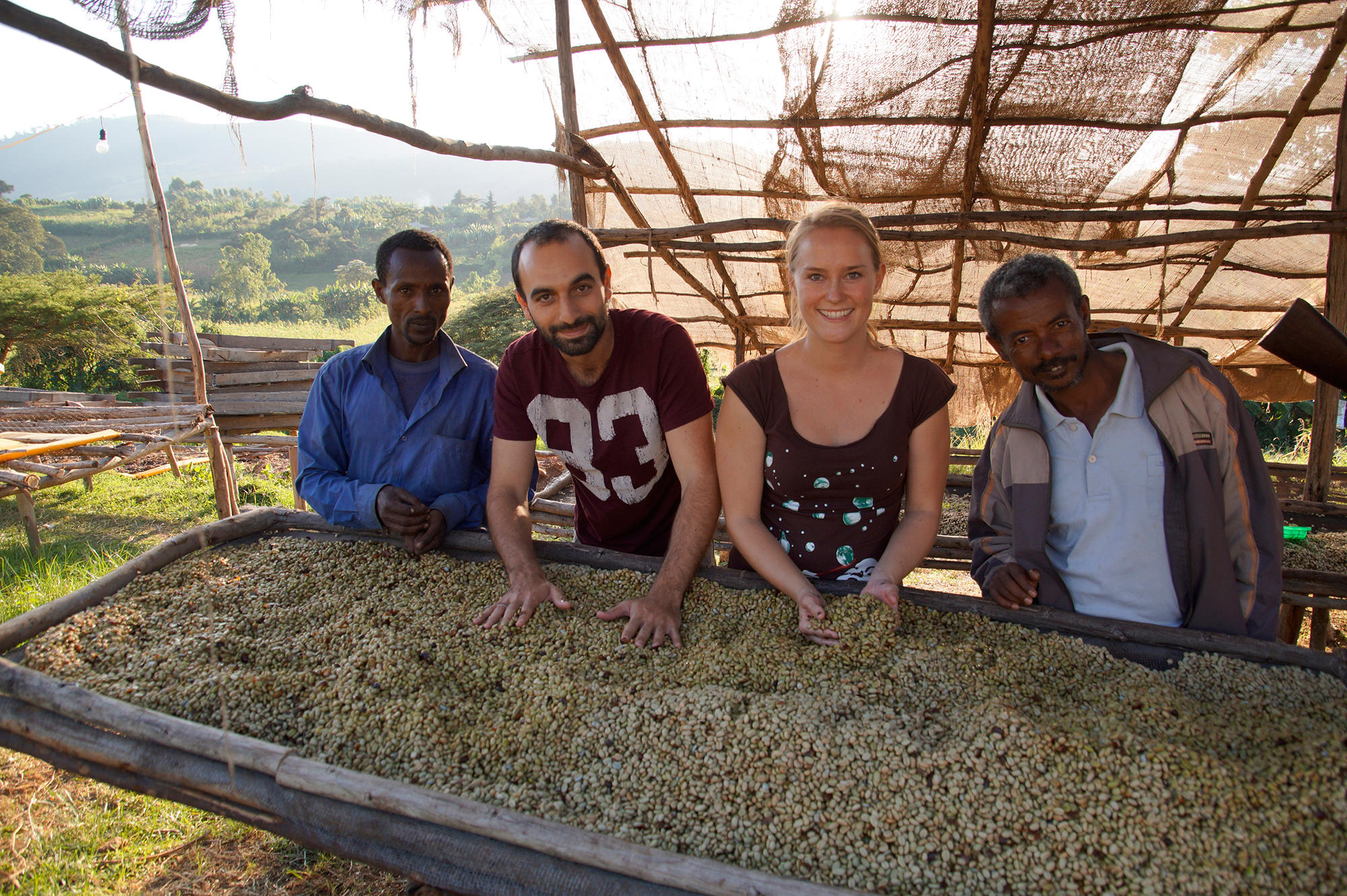
This is the impetus behind “the coffee trip” that journalists Conradin Zellweger and Marco Frauchiger joined during the coffee harvest season last November. Every year, Direct Coffee takes coffee enthusiasts from Europe to the forests in Ethiopia to meet coffee farmers, conduct blind taste tests, and understand the complexity of bringing coffee from the forest to your cup.
This article is based on interviews and observations by journalists Conradin Zellweger and Marco Frauchiger during their field reporting in Ethiopia. They joined several other people featured in this article on the coffee trip organised by Direct Coffee last November. Additional interviews were conducted by swissinfo.ch in Switzerland. The original story (in German) can be found in Surprise magazine.External link
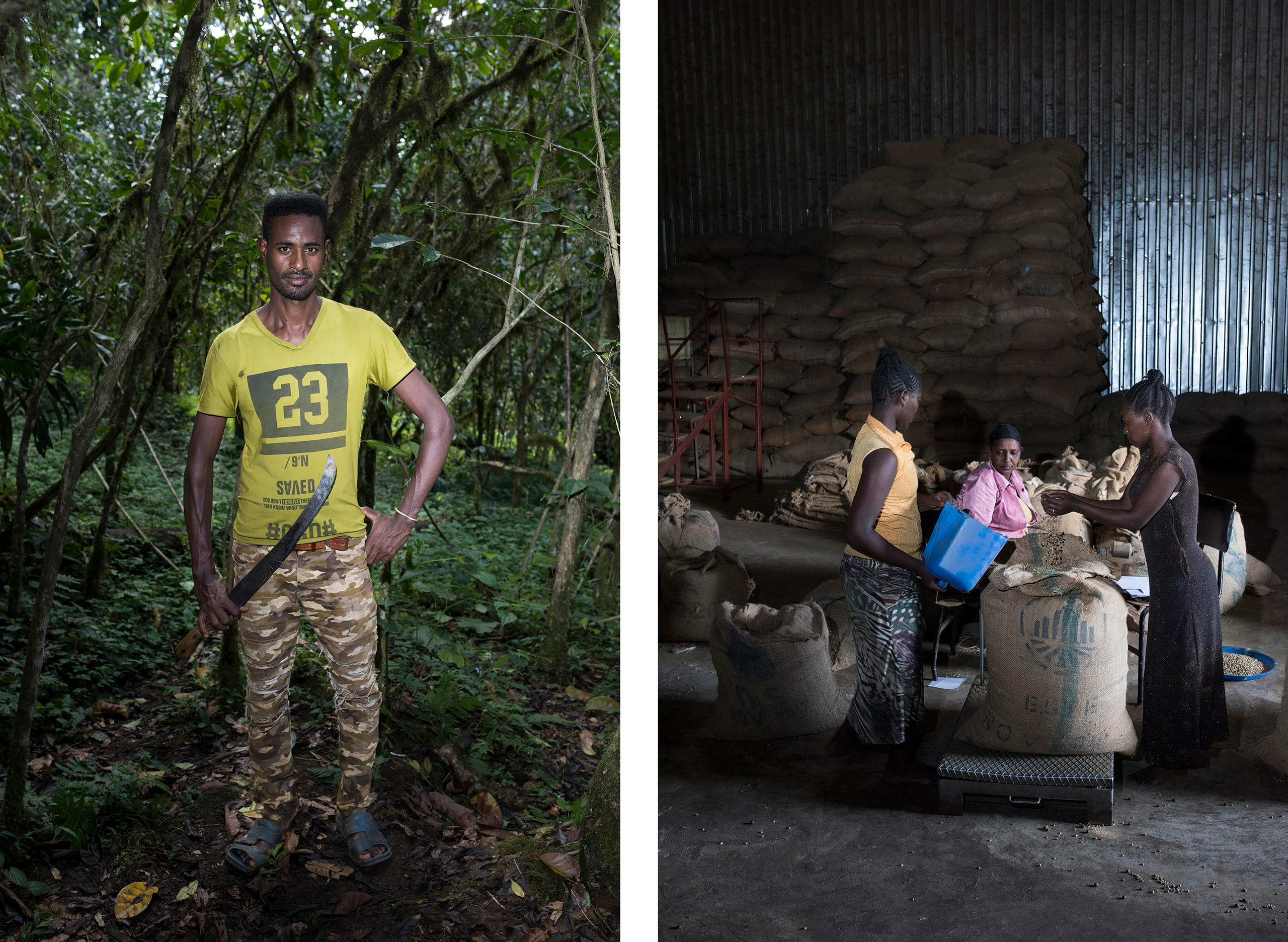
The colour of coffee passion
Bright red coffee cherries sparkle amidst the dark green leaves in the Kottaa cooperative forest. “When I see this bright red colour now, I have an emotional reaction,” Jacques Prodolliet told swissinfo.ch.
Prodolliet worked in quality management at Swiss food and beverage giant Nestlé for 30 years before retiring a few years ago. He has made it his personal passion project to find the best quality coffee and buy it at a price that farmers can live on.
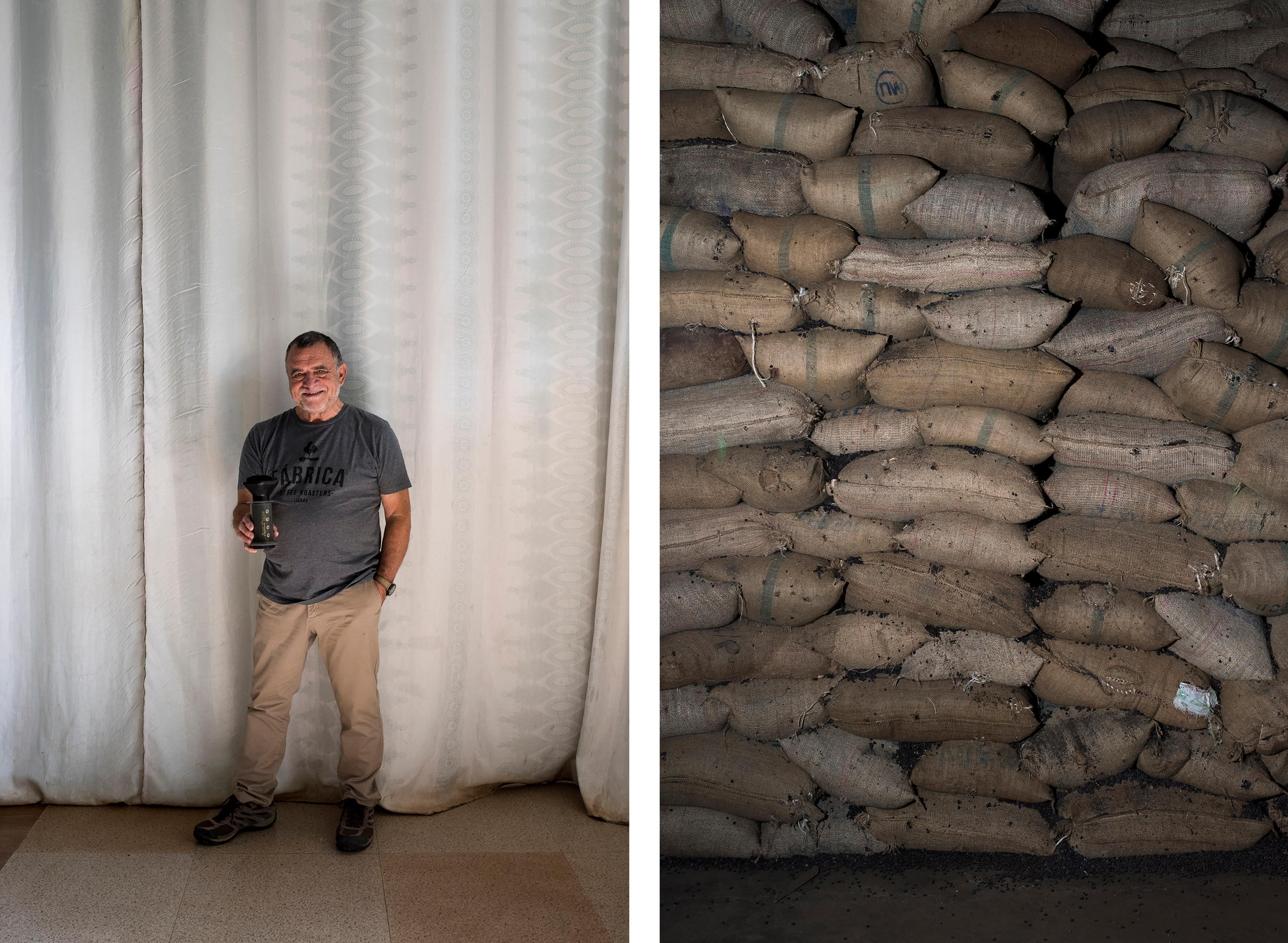
What struck Prodolliet most about the trip to Ethiopia was the complexity of the coffee production process. “There are so many things that can go wrong,” he says. Each step is meticulous from caring for the trees and picking the cherries at their ripest to carefully washing and drying the beans, discarding the duds.
+ Most cups of coffee contain a drop of Switzerland
Tuil explains that Arabica coffee grows wild in its natural environment in Ethiopia where it is rich in biodiversity and shade trees, making it possible to avoid synthetic pesticides. However, it is increasingly under pressure with climate change and the water intensity of coffee production.
“Because of climate change and deforestation, coffee berry disease is becoming an increasing problem for Ethiopian coffee production,” one coffee researcher in Ethiopia explained.
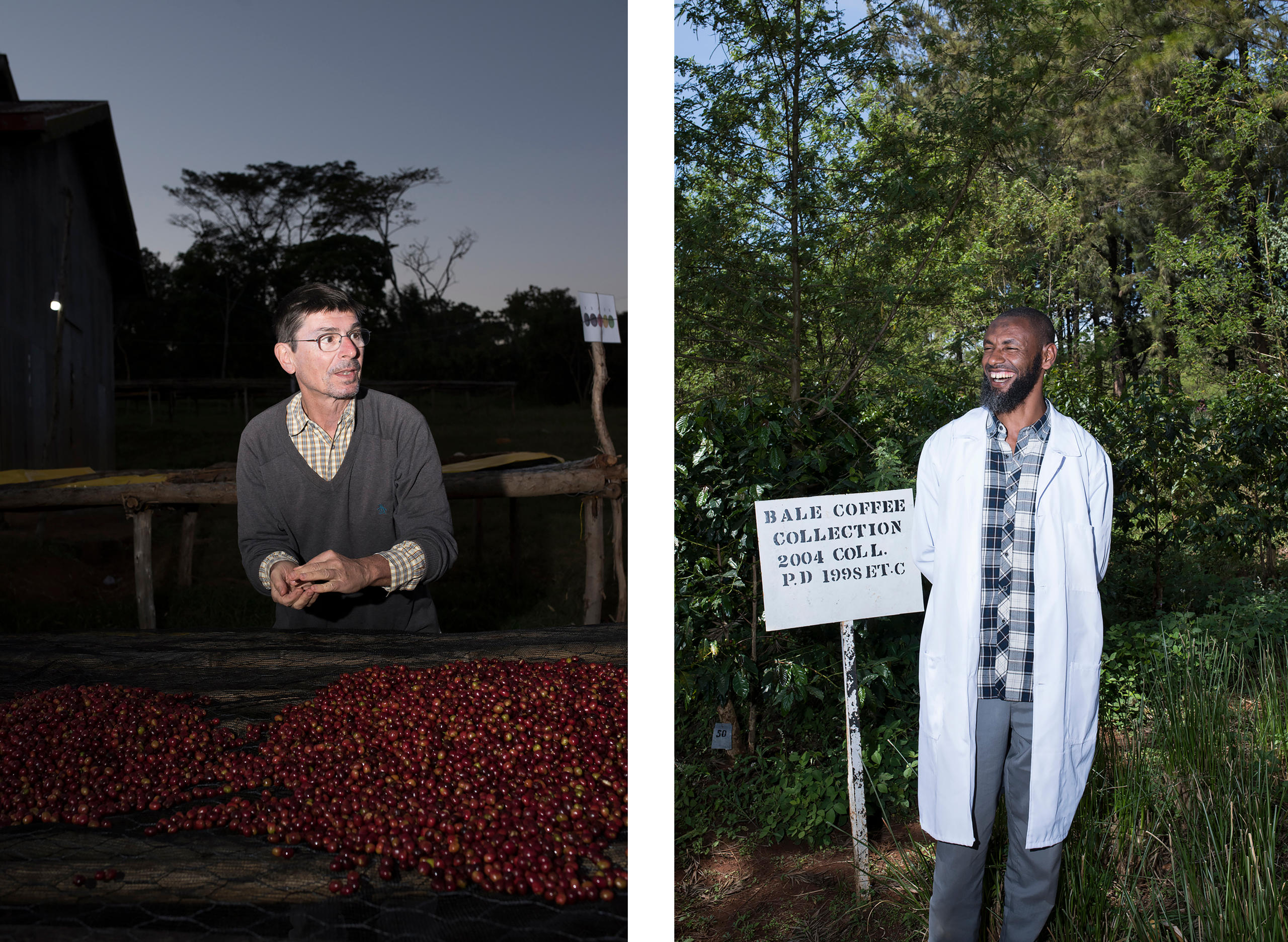
Drop in the bucket
While Direct Coffee may be a small player, the company is part of a burgeoning trend to go beyond certification and labelling schemes like Fairtrade and Organic to make ethical purchasing decisions.
These labels have faced growing criticismExternal link that they are too expensive for small-scale producers and don’t provide enough benefits to individual farmers, who create much of the value in the supply chain. Fairtrade Max HavelaarExternal link responded to this criticism stating that a Fairtrade coffee farmer receives $1.40 plus 20 cents that goes to the cooperative for community projects compared to $1 to farmers that are not Fairtrade certified.
In addition to third-party certification, big companies like NestléExternal link and StarbucksExternal link have been developing their own sustainability standards with external verification.
There is also growing awareness of some systemic problems in the wider coffee trade, in which farmers are at the mercy of coffee prices determined on the New York Stock Exchange.
Price fluctuations have become a big concern for farmers, who were hit hardExternal link when the price plummeted earlier this year. Tuil says that Direct Coffee negotiates the price directly with the coffee unions (made up of several cooperatives) and last year settled on CHF3 ($3) per pound for green coffee (before roasting) whereas the price on the exchange was CHF1.
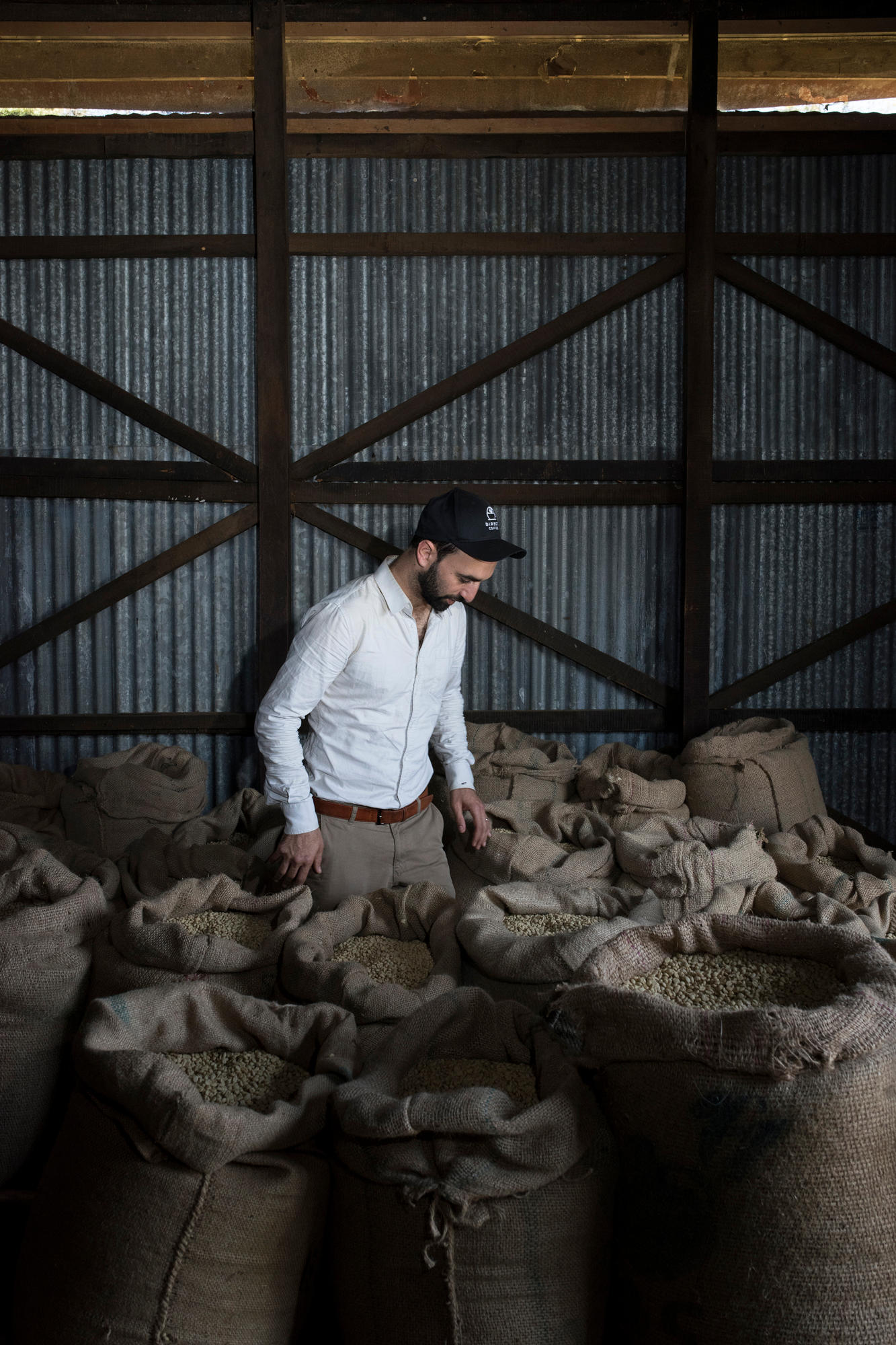
Switzerland is at the centre of the global coffee trade. It is the third-largest re-exporterExternal link of coffee after the European Union and the US and more than 50% of the world’s coffeeExternal link is traded in the country.
It is also home to six of the largest commodity traders, who rarely have any contact with producers. “Many of the coffee importers are dealing in hundreds of tons of coffee. They don’t take the time to get to know the farmers and their concerns,” Tuil explains.
This global coffee trade has also perpetuated what Tuil calls the “black box” due to the presence of thousands of intermediaries and limited traceability to the original source.
Direct Coffee is trying to show that there is another way, using technology to track every container and allowing consumers to follow the journey of their coffee from the exact cooperative in Ethiopia via Djibouti and then on a ship to Antwerp and onto a roaster in Geneva. The company also shows how much is paid to each person or entity to make the final price.
As a more discerning coffee culture brews in big cities like Zurich and San Francisco, this kind of information is in greater demand.
+ Read about Nestlé’s battle for the millennial coffee drinker
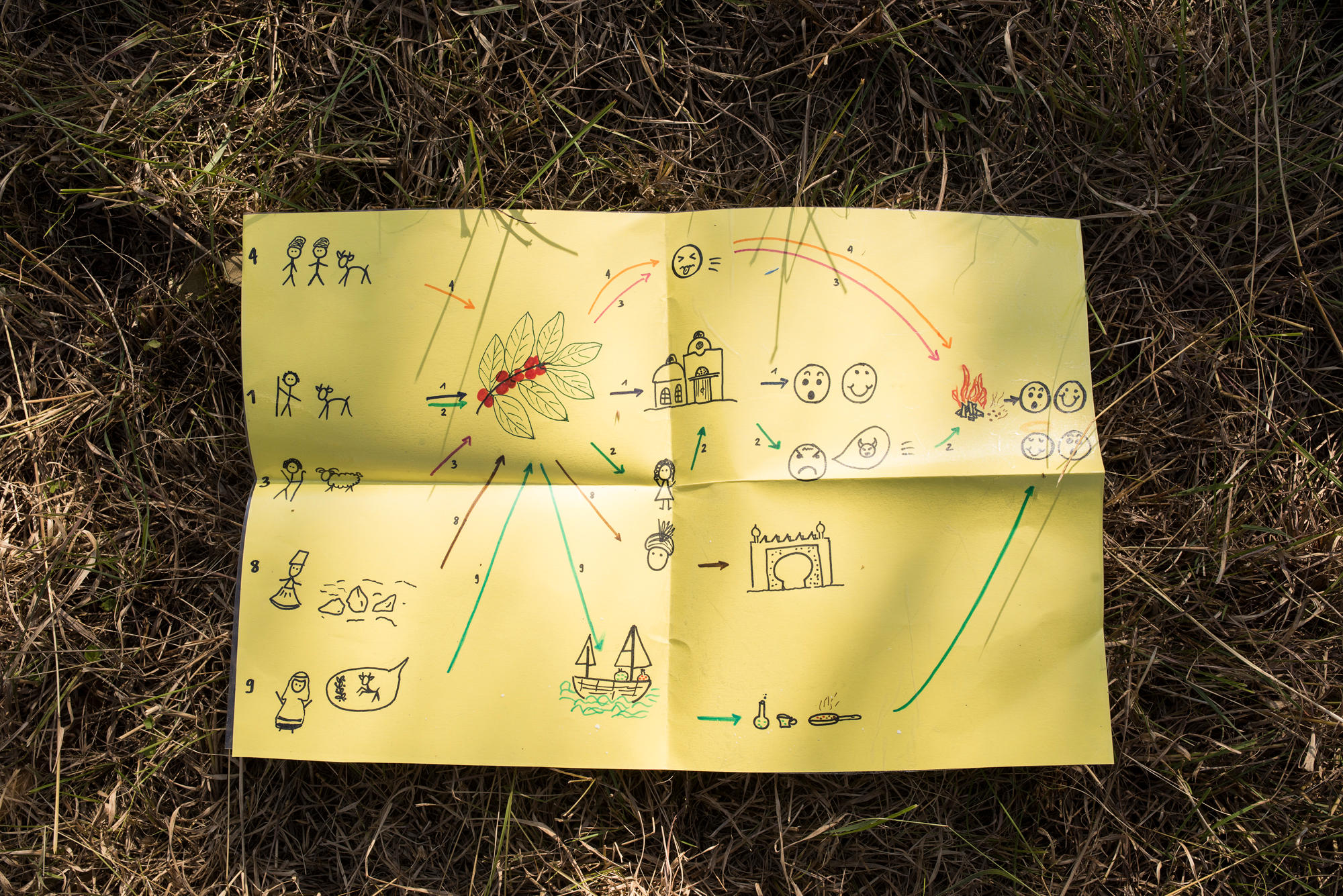
Tuil is convinced that the model can scale. Big companies like Nestlé have also launched a direct sourcing programme called “Farmer ConnectExternal link” that works with and buys directly from coffee farmers.
For now, the Direct Coffee founders say that they can’t imagine selling the company to a big multinational. “We hope that we can inspire other companies by showing what is possible and eventually help change the coffee trade.”
This story was updated to include a response from Fairtrade Max Havelaar.

In compliance with the JTI standards
More: SWI swissinfo.ch certified by the Journalism Trust Initiative































You can find an overview of ongoing debates with our journalists here . Please join us!
If you want to start a conversation about a topic raised in this article or want to report factual errors, email us at english@swissinfo.ch.